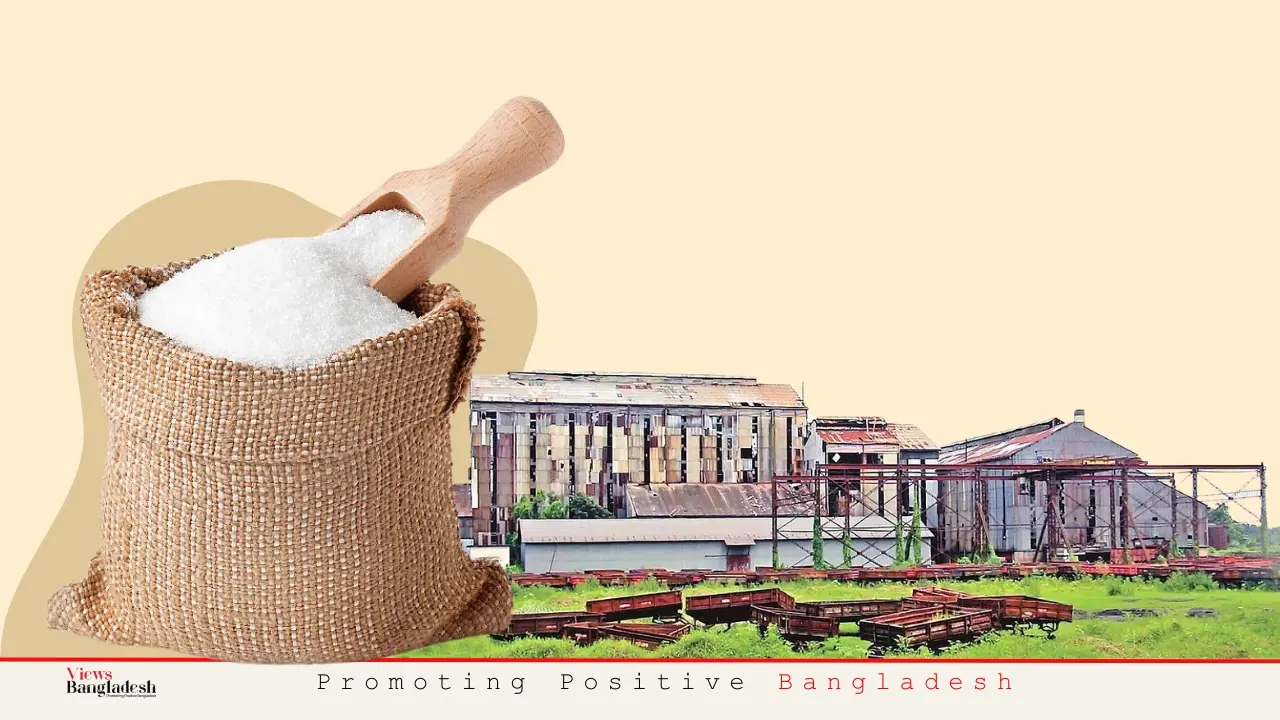In a significant move for Bangladesh’s sugar industry, the government has announced that nine state-owned sugar mills are set to resume their operations this crushing season. The mills will begin processing sugarcane and producing sugar starting from mid-November.
The Ministry of Industry issued a gazette on November 11, confirming that the sugar mills will start their operations under the provisions of the Sugar, Jaggery, and Other Sugar-Related Products (Production and Distribution) Control Order, 2006. According to the schedule outlined in the gazette, the first sugar mill, North Bengal Sugar Mills Limited, will commence operations on November 15. Following this, other mills will start production in stages: Rajshahi Sugar Mills Limited and Natore Sugar Mills Limited will begin on November 29, Zhil Bangla Sugar Mills Limited on December 6, and three more mills—Thakurgaon, Mobarakganj, and Faridpur—will start on December 13. The last batch of mills, Keru and Company Bangladesh Limited and Joypurhat Sugar Mills Limited, will begin operations on December 20.
The restart of these mills is part of the government’s broader effort to revive the country’s sugar industry and provide new opportunities for local sugarcane farmers. Bangladesh Sugar and Food Industries Corporation (BSFIC), the state-owned body overseeing these mills, hopes to stimulate domestic sugar production and ensure a more stable supply for the local market.
However, while nine mills are set to resume production, the fate of six other mills remains uncertain. These mills—Kushtia, Pabna, Panchagarh, Rangpur, Shyampur, and Setaibganj—have been inactive for a long period. Despite earlier statements by BSFIC regarding plans to reopen them in phases, no specific timeline or actions have been confirmed for their revival in the current crushing season.
The decision to reopen these mills offers a potential lifeline for Bangladesh’s sugar industry, which has faced numerous challenges in recent years. However, ensuring long-term sustainability will require addressing several key factors. Reducing production costs, increasing efficiency, and maintaining high-quality output will be essential to the industry’s survival. The government and BSFIC will need to focus on strategic investments and modernization of these mills to enhance competitiveness in the local and international markets.
As the sugar industry revives, the ultimate goal remains to strengthen the sector and benefit both the farmers who rely on sugarcane cultivation and the broader economy. Only time will tell if the ongoing reforms and operational changes can lead to a more efficient and thriving sugar industry in Bangladesh.
















